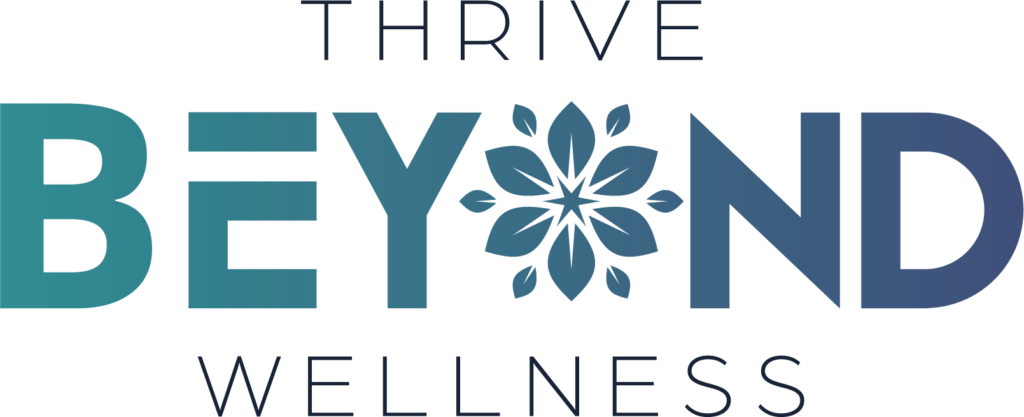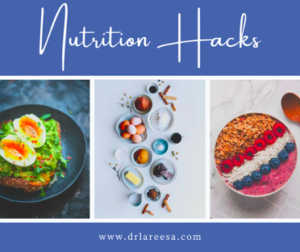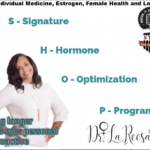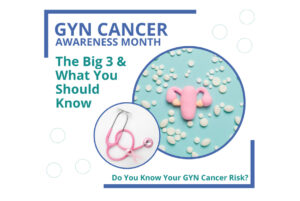
Hot flashes are one of the most common symptoms of perimenopause and menopause. Yet, hot flashes are not necessarily normal. But before we jump to conclusions, let me explain this one.
Many women begin to experience hot flashes, sometimes called hot flushes, within the years or months before their period stops. And most women continue to experience hot flashes for about 4-10 years after menopause (1).
If you’re reading this, you likely know exactly what I’m talking about when I mention ‘hot flashes.’ You might be sitting and enjoying your dinner or you’re at work, getting things done – then suddenly, a flash of heat seems to come out of nowhere. It spreads throughout your entire body. Your face grows warm. It’s like your body has become a furnace or as if the sun’s hot rays are suddenly beaming down on you. You might begin to sweat. Your heart beats faster. Some women might even begin to feel anxious.
While many women simply learn to live with these hot flashes over the course of many years, the truth is that you shouldn’t have to. Meanwhile, various other women turn to hormonal replacement therapy to help. Yet, is this the best way to rid yourself of hot flashes? Are there more natural solutions that you’re missing? Like most women, you thrive on having the power of choice, most importantly making an informed decision about which is best for you.
I’m going to lay it all out in this article. Let’s breakthrough this web of confusion, and figure out how you can best deal – and potentially eliminate – your hot flashes. It’s time to re-imagine menopause. You’re the Future Female. You take charge. So, let’s take charge of your body and your health. Use menopause as a tool to empower you. You can start right here and right now by reading this article and implementing specific actions. Now, let’s get to it!
The Popular Options
So, let’s start at the beginning. What are women currently turning to when it comes to menopause and hot flashes? Here are a few of the common and popular go-to’s:
1. Relizen
This non-hormonal-based supplement has been very effective for many women. It’s been shown to not only help with hot flashes, but also irritability, mood swings, fatigue, and night sweats. In addition, it doesn’t have any serious side effects.
2. Holistic Approaches
I’ll talk about this in more detail below, but let’s briefly touch on it here. Many women have also dealt with the symptoms associated with menopause through diet and exercise changes – and then some. For example, if vaginal dryness is an issue, many women purchase lubricant to solve the problem or turn to increased foreplay. All in all, this is a much more personalized, independent, and less formative treatment.
The cost may also vary from person to person depending on the changes they make. For instance, a gym membership or certain food items may cost more or less, depending on what you chose.
3. Herbal Remedies
When it comes to herbal remedies, many women turn to Black Cohosh, Red Clover, Dong Quai, Ginseng, Kava, and more. This is often the choice of women who want a method that is more in line with their bodies since it’s based on all-natural remedies as opposed to prescriptions.
The cost? This often depends on if a herbalist is preparing the remedy, if you are preparing it, or if the remedy is bought pre-made.
4. Personal Choices + Supplements
By personal choices, I’m referring to the women that wear layers of clothing to combat body temperature changes or sip on ice water to cool down. A personal choice may also include identifying hot flash triggers and eliminating them.
Supplements may also be used, especially when triggers are not identifiable right off the bat. The cost, again, depends. How many supplements are you taking? What are the expenses of these? It varies from woman to woman.
5. Drug-Free Treatment
Non-pharmacological treatments may involve counseling and psychological treatment, such as cognitive-behavioral therapy (CBT). Some women may also explore hypnosis and acupuncture. Often, this is preferred because an experienced counselor or expert can act as their guide through this treatment process.
However, this one comes with a higher cost than most. For an hour of therapy, you’re looking at at least $100 – if not more. For acupuncture, it costs anywhere from $50 to $90 per session.
6. Soy Foods
Foods enriched in isoflavones (a plant-derived estrogen-like substance, such as Red Clover) and isoflavone supplements haven’t consistently been shown to reduce hot flashes. Yet, this hasn’t stopped some women from turning to this treatment method. I recommend discussing your options with your doctor if you’re looking into this one. These types of foods or supplements may have estrogen-like effects, which can be hazardous for some. Overall, though, this is a less invasive approach and it offers the first try for many women to attempt to alleviate their symptoms. Usually, it doesn’t work but it does come with a low-cost point which is enticing to many women who want something budget-friendly and easy.
What Can Hormonal Replacement Do For Your Hot Flashes?
Many women hear from their girlfriends that hormonal replacement therapy is the bees-knees. It’s helped them deal with their menopausal symptoms, so maybe it can help you – right?
Yes, hormonal replacement therapy can help eliminate hot flashes. But here’s the kicker: it can help a secondary problem linked to a primary issue.
There is also a wide range of hormonal replacement therapy options for hot flashes and other menopausal symptoms on the market. These include estrogen-only medications, progesterone-only medications, a combination of estrogen and progesterone, and a combination of estrogen and other medications (2). And these are easy to get your hands on depending on where you live and your accessibility. These are best advised under the care of a medical provider or more experienced hands that understand connections with your medical background and can individualize catered to your body’s needs.
There is no one-trick pony at times. Honestly, minor adjustments and alternatives to hormone therapy can be a normal part of the process of doing what is best for you.
So, what on earth am I talking about? What’s the real problem?
Don’t Treat the Symptom – Find a Solution
Just because many hormonal therapies are deemed ‘natural,’ it doesn’t mean they’re good for you. In an ideal world, your body and its systems should be able to balance your hormones so that you feel good and can live your life – without symptoms, like hot flashes, standing in your way.
I’m not saying that you shouldn’t necessarily explore hormonal replacement therapy. Many women find it extremely effective. And it may be worthwhile to try out to ease some initial discomforts. If you’re interested, I recommend connecting with a medical professional to uncover whether you are a good candidate or not for this.
Further, there are bioidentical vs synthetic hormone replacement options. Bioidentical means that these hormones have the exact same molecular structure as the hormones produced naturally within your body. Meanwhile, synthetic hormone replacement options are produced through synthesis and do not have the exact same chemical structure as naturally-occurring hormones.
At the same time, even if you go the route of hormonal replacement therapy, you should still work toward fixing those underlying issues. So, what’s coming into play here?
1. Stress & Anxiety
Interestingly, stress and anxiety aren’t necessarily a symptom associated with hot flashes. In fact, according to research, many women experienced moderate to severe anxiety and stress before they began experiencing hot flashes (3). This leads many researchers to believe that hot flashes are more likely to happen when someone has already experienced somatic symptoms relating to anxiety and stress.
Alright, so you’re stressed out. Not surprising. The Future Female juggles it all – from family to career goals. It’s incredible what the modern woman is capable of. But it doesn’t come without repercussions if you’re not careful – hence, hot flashes, stress, and more.
Yet, what can you do about it?
As far as natural solutions go, mindfulness-based therapy research has shown great promise when it comes to reducing hot flashes and night sweats in menopausal women. A 2011 study published in Menopause explored this concept. 110 late perimenopausal and early postmenopausal women participated. The group of women that participated in mindfulness-based stress reduction for 20 weeks reported being bothered 21.62% less by hot flashes and night sweats (4).
This means that by actively participating in mindfulness-based stress reduction activities, you may be able to reduce the effect that hot flashes have on your everyday life. While there are various forms of this available through online programs, you don’t necessarily have to pay money to begin implementing this in your life.
Take action now. Start regularly performing deep breathing exercises. This may involve sitting for 5 minutes and taking slow and deep breaths in, then performing slow and controlled exhales. You can also choose to perform guided meditations, which there are various smartphone apps available to do so. Some examples include Insight Timer, Calm, and Headspace.
Further, it’s about learning to be present and learning to live in the now. Planning for the future is always important, but it’s not here yet. Your most important actions matter in the here and now. Reminding yourself of this can take the pressure off and force you to realize that there are certain things within your control and certain things out of your control. You need to focus on what’s in your control. This can help lessen your stress or anxiety by narrowing your focus and gently reminding you of what are the most important pieces in your life.
2. Lack of Exercise
The human body simply doesn’t function as well without movement. This has been proven through various studies. Exercise reduces the risk of diabetes, heart disease, cancer, obesity, osteoporosis, depression, and more (5).
Now, you’re probably wondering, ‘How does exercise help balance my hormones and reduce or eliminate my hot flashes?’
Let’s start with this: Getting older is inevitable. It’s going to happen, whether we want it to or not. Most of us would rather stay young forever, but is this merely because we aren’t aging gracefully or as well as we could?
How fast you age is controlled by the length of your telomeres. Telomeres are proteins found at the end of DNA strands. Essentially, they protect your DNA from harm. Yet, when your cells divide, the telomeres become shorter. When the telomere becomes too short, it basically self-destructs. In a way, this is the beginning of the end (as dark as that may sound).
However, your telomere length is influenced by various factors – some of which can accelerate this shortening and aging process. Smoking, pollution, stress, obesity, and a lack of exercise all contribute to this acceleration.
More specifically in relation to exercise, endurance training and interval training have been associated with increased telomere length (6). From this, we can draw some conclusions. For instance, walking is beneficial for the body and for aging gracefully. It’s been associated with this in the past. As an endurance activity that elicits low stress, it can be assumed that this is a good form of exercise to help with the aging process and with maintaining hormonal balance.
In turn, participating in such regular exercise can help protect your cells from damage. This allows them to do their job properly, which includes the processes involved in hormonal production and activation.
And exercise doesn’t have to be complicated!
Keep it simple. If you aren’t currently exercising, try going for a 5-10 minute walk each day and gradually increase that until you’re doing 20-30 minutes. Don’t stress yourself out about it and don’t overdo it.
In fact, resistance training is one of the best forms of exercise. According to scientific research, it can help boost testosterone and support muscles, bones, joints, and endurance improvements (7).
3. Nutrition
Diet is another major factor impacting telomere length (8). This one sounds overly simple, but it’s something many women (and people) get wrong.
The modern western diet is full of toxic elements. Our food undergoes more processing than ever before. It contains chemicals and substances that were never meant to enter the human body.
On top of that, fad diets and quick fixes are everywhere. And it is difficult to figure out which one applies to your life or begets more good than harm. Take intermittent fasting for instance. While many people tend to report it works for them – they feel good, they’ve lost weight, they have more energy – there are also many people for whom it doesn’t work out. Specifically, women struggle with any diet that involves fasting or extreme caloric reduction.
However, with most fads, it’s about understanding how the modifications fit for you. There are many science-driven studies that draw off the basic tenets of intermittent fasting, and the ones that are more successful for women promote better longevity, regenerates the body to heal, have an improved immune response, and decrease inflammation that leads to chronic disease, cognitive decline, or obesity.
Hormones involved in ovulation, metabolism, and mood require adequate energy intake to do their job properly. There’s also the monthly cycle involved in regulating these hormones which require that this energy need is met on a consistent basis.
From an evolutionary perspective, women need a bit of fat on their bodies. Women will lose their period entirely with a very low body fat percentage. Why? Because if the body isn’t getting enough food, it’s not safe to have a baby. While some women don’t want to necessarily get pregnant, it’s hard to ignore that this is the main driver of all-female biological functions. If you don’t have adequate body fat, your body begins to cut costs. And this inevitably impacts your hormones and throws everything off.
But your nutrition is a key part of this. You need to eat enough consistently to ensure your body has the energy it needs to perform the functions it requires and produce and activate your hormones. This is important for hot flashes since it’s your hormones that regulate your body temperature and your metabolic function.
Lastly, toxic elements in your diet can interfere with your endocrine (hormonal) processes. Chemicals or substances can act similar to hormones or inhibit them entirely.
Focusing on eating a diet of whole and real foods can help you begin to improve your health from the most basic level. Limit or avoid pre-packaged and processed food items. I say ‘limit’ because I know it’s almost impossible to fully eliminate them. Also, you want to enjoy your life and not feel restricted by the food you eat, since this can often lead to unhealthy and disordered eating patterns. You can also turn your focus to more antioxidant-rich foods, which can help protect against cellular damage. (To learn about how DNA Diets can benefit you, review this blog post).
4. Assessing Other Aspects of Your Lifestyle
Diet, exercise, and stress aren’t the end of the road here. There are other aspects to consider, such as smoking, alcohol intake, caffeine intake, and prescription medication.
If you smoke, quit. I know that’s easier said than done. But taking the time to really dive into why you smoke and how you can eliminate it can add years to your life and also improve your overall quality of life (including reducing hot flashes and other menopausal symptoms).
If you’re a big drinker, cut back. Stick to a couple of drinks a week. If this isn’t doable, maybe cut out alcohol entirely. There aren’t any nutrients in most alcoholic drinks and it places a burden on your liver, which plays a role in hormonal function.
Caffeine intake is also something to watch out for. Too much can significantly impact your blood sugar levels, sending them into disarray. This leads to energy imbalances and more.
Then, there are prescription medications. While this isn’t possible to eliminate and you should always take the recommendations of your doctor seriously, you may want to explore and research more natural ways to address your issues. For instance, blood pressure problems can sometimes be linked to your diet. This isn’t a total solution, but it’s something you may want to look into further.
Eliminating Your Hot Flashes Isn’t a One Trick Pony
Why you’re experiencing hot flashes in the first place is often due to a variety of factors. Thus, it often takes an integrated approach to find your unique solution. Hot flashes may even be indicative of other health issues, such as those involving your thyroid.
Take the power back into your hands. Menopause isn’t out of your control. In fact, you can take action and take strides toward aging gracefully and without the common symptoms that come with it.
Want to learn more about re-balancing your hormones? Book a Discovery Call with me today. Let’s unmask your symptoms and get to the bottom of your hormonal issues once and for all. 2021 has the potential to be your best year yet.

Wellness & Epigenetics Coach, Consultant, Physician, Health Advocate, Mentor & Author.









